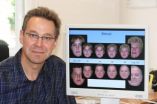(Press-News.org) Brain scans of children with attention-deficit/hyperactivity disorder (ADHD) have shown for the first time why people affected by the condition sometimes have such difficulty in concentrating. The study, funded by the Wellcome Trust, may explain why parents often say that their child can maintain concentration when they are doing something that interests them, but struggles with boring tasks.
Using a 'Whac-a-Mole' style game, researchers from the Motivation, Inhibition and Development in ADHD Study (MIDAS) group at the University of Nottingham found evidence that children with ADHD require either much greater incentives – or their usual stimulant medication – to focus on a task. When the incentive was low, the children with ADHD failed to "switch off" brain regions involved in mind-wandering. When the incentive was high, however, or they were taking their medication, their brain activity was indistinguishable from a typically-developing non-ADHD child.
ADHD is the most common mental health disorder in childhood, affecting around one in 50 children in the UK. Children with ADHD are excessively restless, impulsive and distractible, and experience difficulties at home and in school. Although no cure exists for the condition, symptoms can be reduced by medication and/or behavioural therapy. The drug methylphenidate (more often known by the brand name Ritalin) is commonly used to treat the condition.
Previous studies have shown that children with ADHD have difficulty in 'switching-off' the default mode network (DMN) in their brains. This network is usually active when we are doing nothing, giving rise to spontaneous thoughts or 'daydreams', but is suppressed when we are focused on the task before us. In children with ADHD, however, it is thought that the DMN may be insufficiently suppressed on 'boring' tasks that require focused attention.
The MIDAS group researchers compared brain scans of eighteen children with ADHD, aged between nine and fifteen years old, against scans of a similar group of children without the condition as both groups took part in a task designed to test how well they were able to control their behaviour. The children with ADHD were tested when they were taking their methylphenidate and when they were off their medication. The findings are published in the Journal of Child Psychology and Psychiatry.
Whilst lying in a magnetic resonance imaging (MRI) scanner, which can be used to measure activity in the brain, the children played a computer game in which green aliens were randomly interspersed with less frequent black aliens, each appearing for a short interval. Their task was to 'catch' as many green aliens as possible, while avoiding catching black aliens. For each slow or missed response, they would lose one point; they would gain one point for each timely response.
To study the effect of incentives, the reward for avoiding catching the black alien was then increased to five points, with a five-point penalty incurred for catching the wrong alien.
By studying the brain scans, the researchers were able to show that typically developing children switched off their DMN network whenever they saw an item requiring their attention. However, unless the incentive was high, or they had taken their medication, the children with ADHD would fail to switch off the DMN and would perform poorly. This effect of incentives was not seen in children without ADHD – activity in their DMN was switched off by items requiring their attention regardless of the incentive on offer.
Professor Chris Hollis, who led the study, says: "The results are exciting because for the first time we are beginning to understand how in children with ADHD incentives and stimulant medication work in a similar way to alter patterns of brain activity and enable them to concentrate and focus better. It also explains why in children with ADHD their performance is often so variable and inconsistent, depending as it does on their interest in a particular task."
Dr Martin Batty, co-author of the study, adds: "Using brain imaging, we have been able to see inside the children's heads and observe what it is about ADHD that is stopping them concentrating. Most people are able to control their 'daydreaming' state and focus on the task at hand. This is not the case with children with ADHD. If a task is not sufficiently interesting, they cannot switch off their background brain activity and they are easily distracted. Making a task more interesting – or providing methylphenidate – turns down the volume and allows them to concentrate."
Dr Elizabeth Liddle, first author of the study, says that these findings help explain one of the interesting characteristics of ADHD – that children with the condition appear able to control themselves much better when motivated to do so.
"The common complaint about children with ADHD is that 'he can concentrate and control himself fine when he wants to', so some people just think the child is being naughty when he misbehaves," says Dr Liddle. "We have shown that this may be a very real difficulty for them. The off-switch for their 'internal world' seems to need a greater incentive to function properly and allow them to attend to their task."
INFORMATION: END
Water is a precious commodity, so finding ways to re-use waste water, especially in arid regions is essential to sustainability. Researchers in India have now carried out a study of various waste water filtration systems for kitchen waste water and found that even the most poorly performing can produce water clean enough for horticultural or agricultural use. They report details in the International Journal of Environmental Technology and Management.
Recycling domestic wastewater is becoming an important part of water management and emerging technology and a shift in ...
Two ESA observatories have combined forces to show the Andromeda Galaxy in a new light. Herschel sees rings of star formation in this, the most detailed image of the Andromeda Galaxy ever taken at infrared wavelengths, and XMM-Newton shows dying stars shining X-rays into space.
During Christmas 2010, ESA's Herschel and XMM-Newton space observatories targeted the nearest large spiral galaxy M31. This is a galaxy similar to our own Milky Way – both contain several hundred billion stars. This is the most detailed far-infrared image of the Andromeda Galaxy ever taken and ...
A study by Canadian researchers examined the prevalence of maternal depression and its impact on children newly diagnosed with epilepsy. Prevalence of depression in mothers ranged from 30%-38% within the first 24 months following a child's epilepsy diagnosis. The mother's depressive symptoms negatively impacted the child's health-related quality of life, but the effects were moderated by the amount of family resources and mediated by how well the family functions and the extent of family demands. Details of this novel study appear online in Epilepsia, a journal published ...
How to look younger without plastic surgery? Psychologists of the Jena University (Germany) have a simple solution to this question: Those who want to look younger should surround themselves with older people. Because when viewing a 30-year-old we estimate his age to be much younger if we have previously been perceiving faces of older people.
"People are actually quite good at guessing the age of the person next to them," Dr. Holger Wiese says. The psychologist of the Jena University is responsible for one of six research projects in the DFG-sponsored research unit "Person ...
Scientists at Inserm and Institut Pasteur have performed biomarker discovery on patients being treated for chronic hepatitis C infection. Their work, published in The Journal of Clinical Investigation, demonstrates that the plasma levels of the protein IP-10 predict, prior to treatment initiation, the efficacy of treatment with pegylated-interferon and ribavirin. Based on these results, the scientists have developed a prognostic test. Commercialization is anticipated in 2011, and will help inform physicians of the chances that patients will respond to standard treatment ...
Severely injured patients transported by helicopter from the scene of an accident are more likely to survive than patients brought to trauma centers by ground ambulance, according to a new study published in The Journal of Trauma: Injury, Infection, and Critical Care. The study is the first to examine the role of helicopter transport on a national level and includes the largest number of helicopter-transport patients in a single analysis.
The finding that helicopter transport positively impacts patient survival comes amid an ongoing debate surrounding the role of helicopter ...
As every middle-school child knows, in the process of photosynthesis, plants take the sun's energy and convert it to electrical energy. Now a Tel Aviv University team has demonstrated how a member of the animal kingdom, the Oriental hornet, takes the sun's energy and converts it into electric power -- in the brown and yellow parts of its body -- as well.
"The interesting thing here is that a living biological creature does a thing like that," says physicist Prof. David Bergman of Tel Aviv University's School of Physics and Astronomy, who was part of the team that made ...
Boston, MA – A new study of men with prostate cancer finds that physical activity is associated with a lower risk of overall mortality and of death due to prostate cancer. The Harvard School of Public Health and University of California, San Francisco researchers also found that men who did more vigorous activity had the lowest risk of dying from the disease. It is the first study in men with prostate cancer to evaluate physical activity after diagnosis in relation to prostate cancer-specific mortality and overall mortality.
The study appears in an advance online edition ...
PROVIDENCE, RI – When methicillin-resistant S. aureus (MRSA) is carried in the nose (nares), it is a risk factor for an invasive infection, including a surgical site infection. Some studies have found that the heavier the carriage of MRSA in the nose, the greater the risk of transmission to others and the greater risk of infection to the patient. Few studies to date have assessed the differences in quantity of MRSA at different body sites. A new study from Rhode Island Hospital now sheds light on both the quantity of MRSA at different body sites and the relationship between ...
Using a thermostatic mixer valve to control the maximum temperature of children's bath water can significantly reduce the temperature of hot bath water and should reduce the risk of scalding, according to researchers at The University of Nottingham.
The study, carried out in partnership with Glasgow Housing Association, found that families with a thermostatic mixing valve (TMV) fitted to the hot and cold water pipes in their bathroom had bath water temperatures that were up to 11˚C cooler than those without and their baths were within the recommended temperature ...

